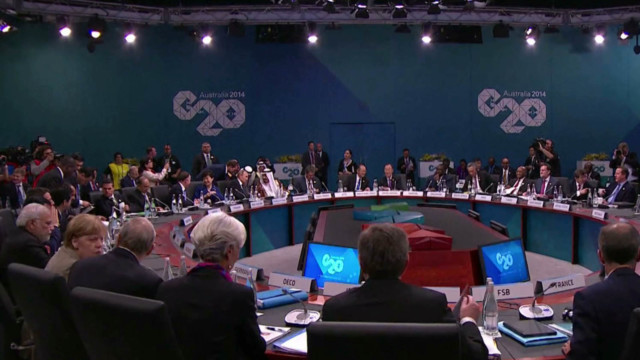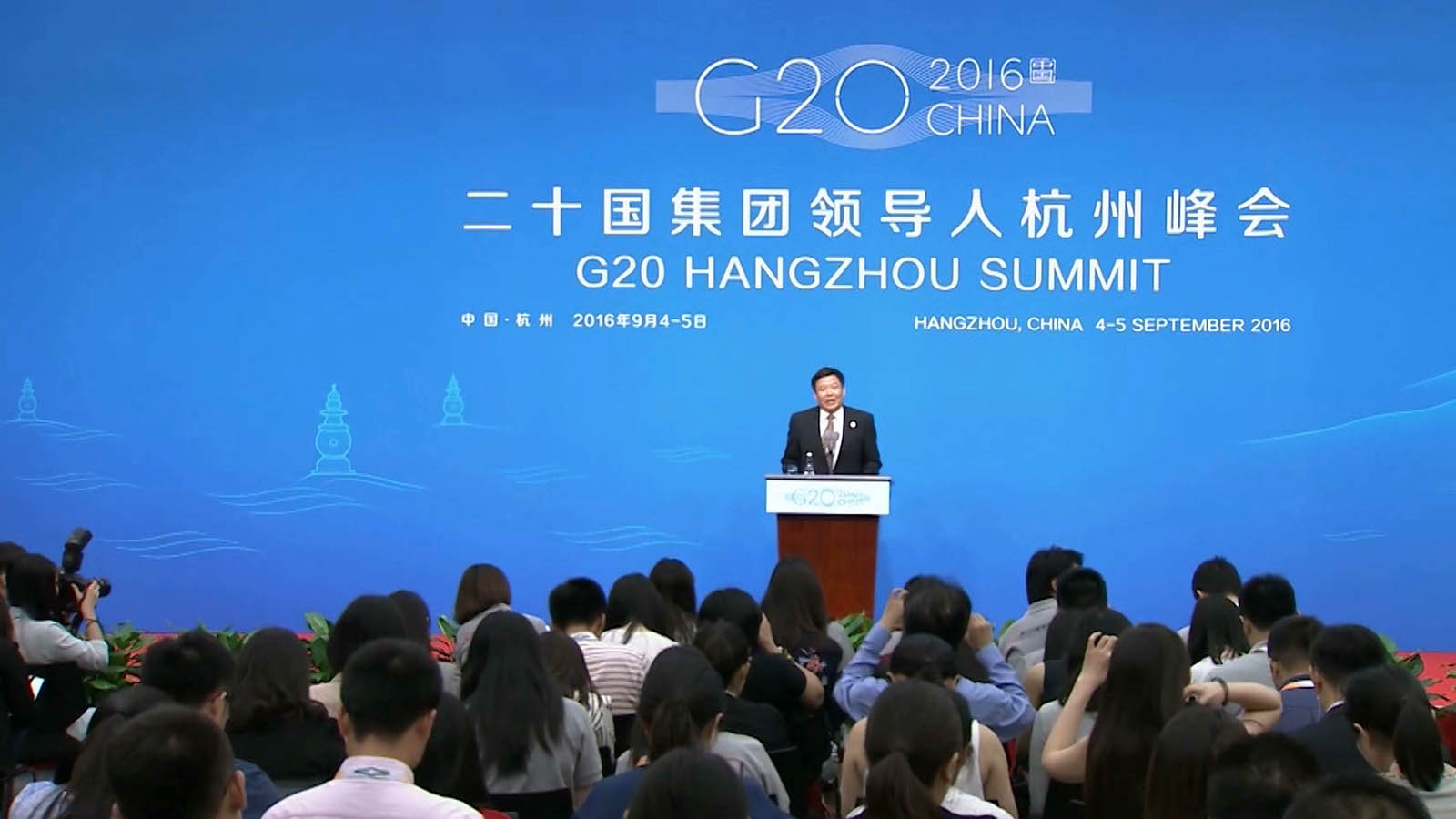It was 2008 when Lehman Brothers went bust and the world’s financial system was imploding.
As some talked of a new Great Depression, Washington hosted the first summit. Then came London; then Pittsburgh.
CCTV America’s Nathan King looks back at the pivotal point in G20 history.

It was in Pittsburgh, in the wake of the global financial crisis in 2009, that the G20 for the first time became the vehicle for global economic decision-making. Humbled by the crisis, the West realized it had to reach out to Asia, Latin America and beyond the post-World War Two economic structures.
In Pittsburgh, developing nations found a new voice. The goal is to avoid even worse economic and financial crises and encourage growth.
In June 2010, Canadian Prime Minister Stephen Harper welcomed the G20 summit to Toronto. It ended with what was described as a ‘landmark deal’ to slash deficits in half in just three years.
Just months later, leaders met again in Seoul. There, G20 leaders announced more shared commitments to sustainable, balanced economic growth and pushed to prevent currency manipulation. And the ROK’s president at the time downplayed differences between U.S. and China.
There were also advances in the fight against climate change and in reforming the International Monetary Fund. Leaders talked about the need for banking reform so that taxpayers wouldn’t have to fund another bank bailout.
In November 2011, French President Nicolas Sarkozy welcomed Chinese President Hu Jintao to Cannes. There was more talk of unity to spur global economic growth. However, few concrete agreements emerged.
Europe’s economic crisis pushed the focus on developing countries to the back burner.
The seventh meeting of G20 heads came in Los Cabos, Mexico in June 2012. While there was talk of expanding the scope of economic development, most of the focus was, again, on Europe.
Chinese President Xi Jinping attended his first G20 Summit in September 2013. Military policy dominated talks in St. Petersburg with U.S. and Russia sparring over what military action, if any, should be taken against Syrian President Bashar al-Assad.
More than a year passed before Australia hosted the next summit in Brisbane. With the global financial crisis virtually resolved, the focus turned to creating jobs a new infrastructure investment hub and fighting corruption.
The most recent G20 meeting was in Antalya, Turkey. The tone was somber, as the Paris terror attacks took place just days before. A joint statement called such attacks “unacceptable affront to all humanity.”
And now it’s China’s turn to host the G20 summit, with a very different economic outlook than in 2009, requiring a very different economic approach- one that includes all stakeholders in the global economy.
 CGTN America
CGTN America


